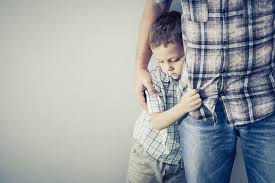Is Your Child Just Shy, or Is It Social Anxiety?
- Hui Ling How
- Apr 18, 2025
- 2 min read

It's common for children to feel nervous or quiet in new situations—especially here in Malaysia, where respect and humility are often encouraged from a young age. But how can you tell when your child’s shyness is a normal part of growing up, and when it might be something more serious—like social anxiety?
At our clinic, we often meet parents who are unsure whether to be concerned. So let’s explore the difference together.
Shyness vs. Social Anxiety: What's the Difference?
✅ Shyness
Shyness is a natural personality trait. Shy children may:
Take time to warm up to new people or environments
Prefer small groups or one-on-one play
Feel a little nervous before speaking in class but eventually manage
Usually, shyness fades once a child feels comfortable or safe.
🚨 Social Anxiety
Social anxiety, on the other hand, is more intense. Children with social anxiety may:
Avoid speaking in front of others, even when they know the answer
Worry for days before a school performance or group activity
Fear being judged, laughed at, or embarrassed
Have physical symptoms (e.g., stomach aches, sweating, trembling) before social situations
Struggle with friendships or avoid social interaction altogether
This isn’t just being quiet—this is fear interfering with daily life.
Why It Matters
Social anxiety can affect your child’s confidence, school performance, and ability to build relationships. Left untreated, it may lead to:
Low self-esteem
Academic challenges
Loneliness or depression
Early support can make a world of difference.
What Causes Social Anxiety?
There’s no single cause, but factors can include:
Temperament: Some children are naturally more sensitive.
Family dynamics: Overprotectiveness or high expectations can increase pressure.
Cultural influences: In Malaysia, children are often taught to be polite and obedient—sometimes at the expense of self-expression.
Past experiences: Embarrassment, bullying, or being laughed at can create fear of judgment.
What Can Parents Do?
Here are a few things that help:
🧡 Validate Their Feelings
Let your child know it’s okay to feel nervous. Don’t say, “Don’t be silly,” or “Just go and talk!” Instead, try: “I understand that feels hard right now. Let’s figure it out together.”
🗣️ Practice Through Play
Role-play social situations (e.g., introducing themselves, answering a teacher’s question) in a safe, fun environment.
👀 Watch for Patterns
Take note if your child consistently avoids specific situations or expresses intense fear. Keep a journal if needed.
👩⚕️ Seek Professional Support
If your child’s fear is interfering with school, friendships, or family life, consider reaching out to a child psychologist. Therapy can help children learn to manage anxiety with healthy coping skills.



Comments